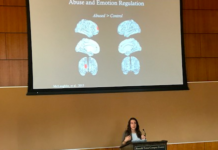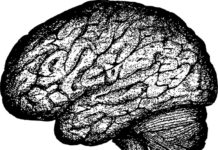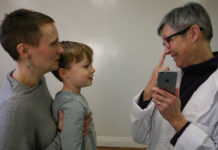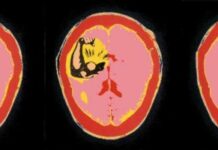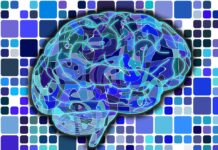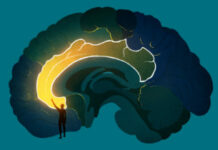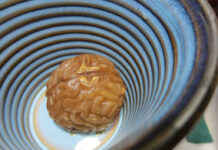What Meditation can do for us, and What it Can’t
In recent years, American scholars and thinkers have increasingly argued for the secularization and modernization of Buddhism, proposing meditation as a fully secular form...
How Neglect and Abuse Change Children’s Brains
From the Center for Health Journalism: Different types of childhood adversity shape the developing brain in distinct ways and need to be addressed accordingly. While...
Findings Linking Depression to Abnormal Brain Activity Questioned
Meta-analyses fail to replicate findings linking abnormal brain activity to depression.
Brief Trauma-Focused Psychotherapies Effective for Children with PTSD
Eye Movement Desensitization and Reprocessing Therapy and Cognitive Behavioral Writing Therapy both reduce PTSD symptoms in children who experienced a single traumatic event.
Political Neuroscience: “Growth Mindsets” and Disability
From Neuroskeptic: The British government is launching a new initiative, the "Health and Work Conversation," a one-hour conversation in which welfare claimants receiving financial support...
When is Stress Good for You?
In this piece for Aeon, Bruce McEwen discusses how "good stress," "tolerable stress," and "toxic stress" act epigenetically on our brain structure, and how we can...
Tell Us 5 Things About Your Book: ‘The Mind of God’
From The New York Times: In his new book The Mind of God, neurologist Jay Lombard uses his experience studying neuroscience to discuss philosophical and spiritual...
Power Causes Brain Damage
From The Atlantic: New research suggests that power may impair neural processes involved in feeling empathy and understanding others' perspectives. Recalling experiences of powerlessness can help...
When Neurology Becomes Theology
In this piece for Nautilus, Robert A. Burton discusses how research into the essence of consciousness is more of a theological, religious exploration than a neurological...
New Data on the Adverse Effects of Meditation and Mindfulness
Study reports on the less-examined findings of difficult and painful meditation-related experiences.
United Nations Report Calls for Revolution in Mental Health Care
In a new report, the United Nations Special Rapporteur on the right to health, Dr. Dainius Pūras, calls for a move away from the biomedical model and “excessive use of psychotropic medicines.”
Moral Enhancement Technologies are Reportedly Ineffective, Impractical, and Unwise
A new paper published in Bioethics assesses proposals to “enhance morality” through neuropharmacological and neurotechnological interventions.
Brain Stimulation Research Lacking in Reproducibility and Scientific Integrity
Questionable research practices and poor reproducibility in electrical brain stimulation (EBS) studies.
This is the Fastest way to Calm Down
From TIME: A recent study suggests a neurological explanation for why deep breathing can be so effective in reducing stress and anxiety.
Article →
Animal Study Supports Influence of Probiotics on Resilience to Stress
Researchers experimenting on mice found that Lactobacillus—the probiotic commonly found in yogurt—may help reduce depressive symptoms in reaction to chronic stressors. But human studies have found mixed results.
DARPA’s Brain Chip Implants: Breakthrough or Total Disaster?
From Gizmodo: Some researchers believe that deep brain stimulation - a surgical procedure involving the implantation of electrodes that send electrical signals to specific areas...
How Brain Scientists Forgot That Brains Have Owners
From The Atlantic: Five neuroscientists have published a new paper arguing that the field of neuroscience has become too focused on technology and has de-prioritized the...
Debunking Myths About Creativity and the Brain
From Pacific Standard: Recent studies have debunked two common myths about creativity and the brain: that the right hemisphere is solely responsible for creative thought,...
Research Shows Mindfulness can Decrease Anxiety
A new study explores the impact of a Mindfulness-Based intervention on stress-related biomarkers in individuals diagnosed with Generalized Anxiety Disorder (GAD).
New Medications Fail to Show Efficacy for Alzheimer’s Disease
Three phase III clinical trials assessing the efficacy of Lundbeck’s investigational drug idalopirdine for Alzheimer’s disease have failed
Neuroscience-based Treatment Program Proposed for Adolescent Depression
A study published in Frontiers in Human Neuroscience proposes a new model for the treatment of adolescents diagnosed with major depressive disorder (MDD).
Researcher Acknowledges His Mistakes in Understanding Schizophrenia
Sir Robin Murray, a professor at the Institute of Psychiatry, Psychology, and Neuroscience in London, states that he ignored social factors that contribute to ‘schizophrenia’ for too long. He also reports that he neglected the negative effects antipsychotic medication has on the brain.
Brain Scans Cannot Differentiate Between Mental Health Conditions
A new study analyzing over 21,000 participants found that differences in activation of brain regions in different psychological “disorders” may have been overestimated, and confirms that there is still no brain scan capable of diagnosing a mental health concern.
Neurosexism: Study Questions Validity of Gender-based Neuroscientific Results
Neuroscientific results that class humans into two categories, “male” and “female,” tend to reify gender stereotypes by giving them the appearance of objective scientific truth.
German Psychologists Declare “the Drugs Don’t Work”
Jürgen Margraf and Silvia Schneider, both well-known psychologists at the University of Bochum in Germany, claim that psychotropic drugs are no solution to mental...


